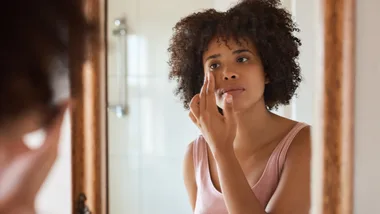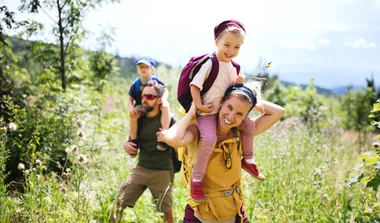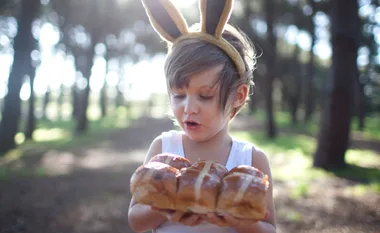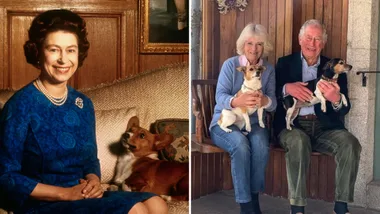We gave them thousands of dollars in scholarship money – so how did these young women spend it?
Since winning our inaugural Women of the Future scholarship, Susanna Matters has used her $20,000 fund to grow her inspiring charity, Goods for Girls, which provides recyclable sanitary pads for girls in Kenya who would usually miss attending school without these vital products.
In the past six months, Susanna has hired a full-time employee in Kenya, a teacher at the Muhaka Secondary School, who has boosted production of the washable, textile sanitary pad from the 200 per month that were being made pre-scholarship, to more than 600 per month.
The teacher, Rachel Kivoya, is also training community health workers as part of her new role and is set to take the sanitary pad-making project to nine different schools and one orphanage in the Muhaka region.
Goods for Girls has also commissioned the building of the school’s first girls’ toilet block, has extended the reach of the project to Makongeni village, 10km from Muhaka, and has partnered with the Community Health Africa Trust, which will distribute the sanitary products via community health workers and mobile clinics.
“This scholarship is changing the lives of women all over Kenya,” says Susanna. “It’s not just a small project anymore, and it’s gone beyond what I ever would have hoped.”
Here’s what Susanna and our other finalists have been up to in the past 12 months.

Last year’s People’s Choice winner India McGuigan (left) and overall winner Susanna Matters (left).

Muhaka Secondary School students take a hike with Susanna Matters (on left) and other Goods for Girls volunteers.

Students get to work making the reusable sanitary pads, known as a “chapatti”.

Rachel, the Goods for Girls schools liaison officer, at the sewing machine.

The completed girls’ toilet block, commissioned by Goods for Girls and paid for with Susanna’s scholarship winnings. Students at Muhaka Secondary School are now able to stay at school all day, without having to travel home and miss class to use the bathroom.

Students at Muhaka Secondary School stand in front of a blackboard, showing their goals for Goods for Girls in 2014.

The girls visit the ASOS Africa factory, to learn sewing skills and processes.

Muhaka students read the women’s health pamphlets distributed by Goods for Girls.

Amy Schirmer: Last year, the 2h Project and I were able to meet our vision and train over 400 traditional birth attendants across two provinces in Cambodia using my scholarship winnings. Most birth attendants have learned their trade by observing other birth attendants, or by trial and error, but now these practitioners have returned to their remote communities with increased knowledge of how to recognise obstetric emergencies. Winning the scholarship and travelling to Cambodia has had a huge impact on my life, and only cemented my passion for women’s health.

Ayesha Lutschini: The scholarship money has allowed the small but incredible team at Meri Toksave to roll up our sleeves and begin growing our organisation, which is working to support victims of domestic violence in Papua New Guinea. We’ve used the funds to create a website, become an incorporated company and pay for flights to PNG, where we launched a directory of emergency services for those affected by violence in January this year. Watching my dream grow before my very eyes has been nothing short of a blessing.

India McGuigan: Winning the $20,000 people’s choice scholarship has made such a dramatic difference to my life. Despite my cancer setback, I’m now in my second year of uni, and my winnings has enabled my financial independence – I can pay for my university fees, textbooks and equipment without the added stress of relying on my parents for assistance, and will come out of my lengthy degree with less debt. I’m well on my way to fulfilling my dream of becoming an oncologist and helping those like me with cancer.

Jane Marx: The competition and scholarship money has had a hugely positive impact on my life, and has enabled me to build the foundations of Long Street, my social enterprise concept. I’ve established a pop-up café, and so far have had two days of trade at community events, offering hospitality training and paid work experience to two young people from refugee backgrounds who have never worked in Australia before. The remainder of my scholarship money will be put towards the cost of running a crowdfunding campaign to raise funds to set up a permanent café in Melbourne.

Ling San Lau: Thanks to the Women of the Future scholarship, I have been able to extend my research program at the Children’s National Medical Centre in Washington DC for another year, using my scholarship winnings for my living and educational expenses. I hope my research will lead to better clinical management and treatment options for children affected by the brain tumour medulloblastoma, and it’s exciting to be collaborating with key researchers who have really transformed the field in recent years. I am looking forward to returning to Australia, equipped with the skills to better help my patients.

Rebecca Roberts: Using my scholarship win, I have set the wheels in motion to hold our first school holiday art program for indigenous students in the October school holidays this year. There is plenty of planning to be done in the meantime, and I will be travelling to Wyndham in the Kimberley region of WA in a month to get started. We’ll be using the $10,000 for resources to run the program, as well as transport costs. I really can’t wait to get things happening, and having the money available has been so encouraging of my dream.

Samantha Cran: The scholarship fund has given me the opportunity to continue to develop skills which are geared towards what I’m passionate about – making a difference. We’ve generated brand awareness for the not-for-profit organisation One Disease at a Time of which I am CEO, and I have put the funds towards professional development and education in fundraising. The not-for-profit space is very competitive, and by up skilling and trialling new concepts, I have the best chance of raising funds and securing partnerships to fuel the work we do on the ground, working to eradicate scabies in NT’s East Arnhem Land.

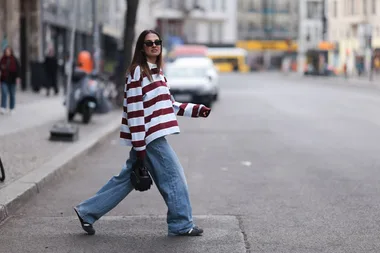

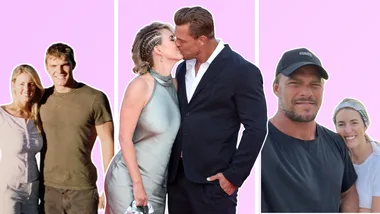
.png?resize=380%2C285)
